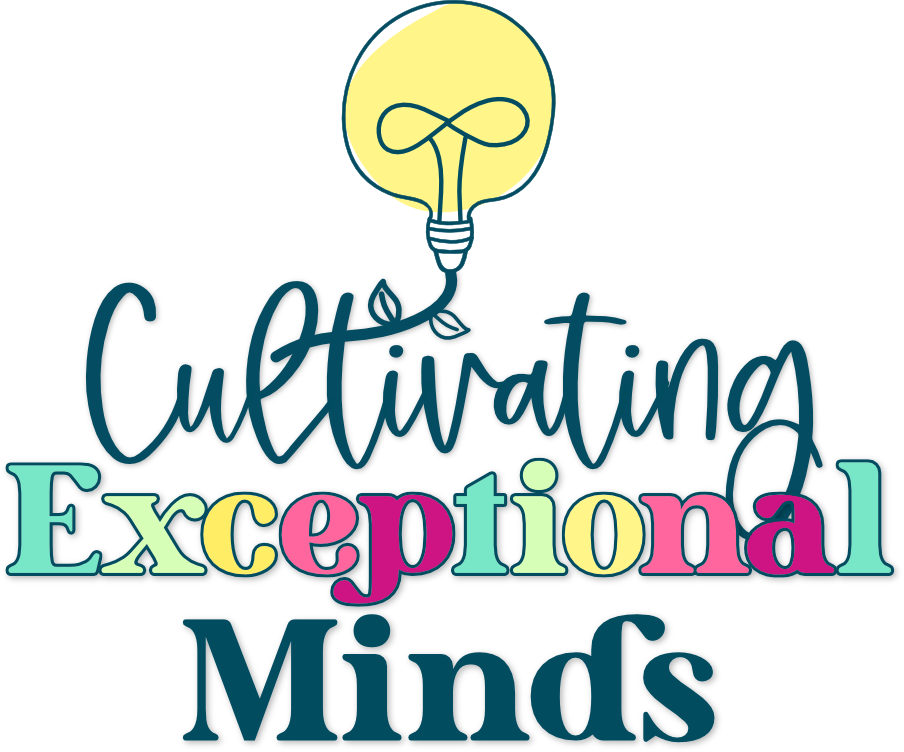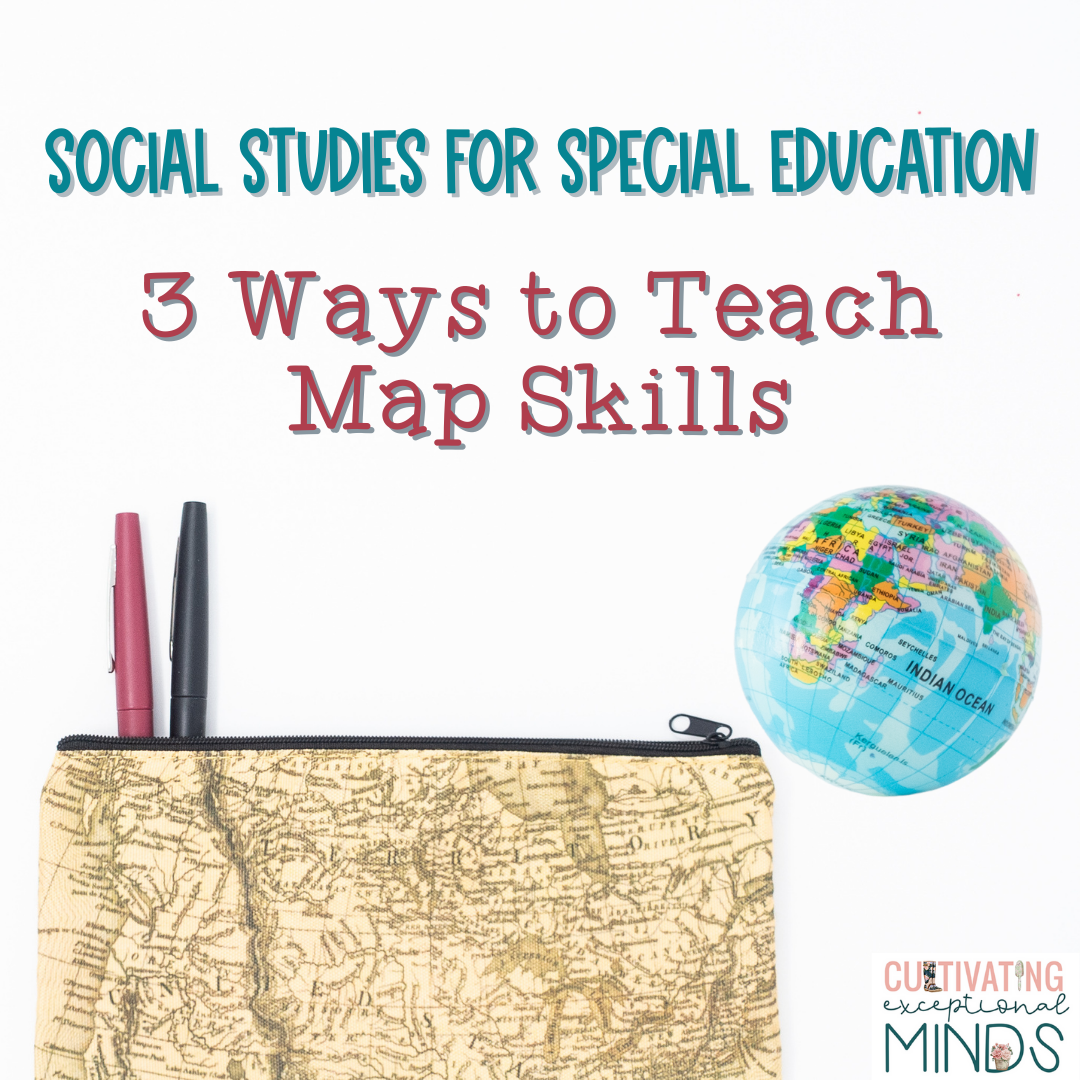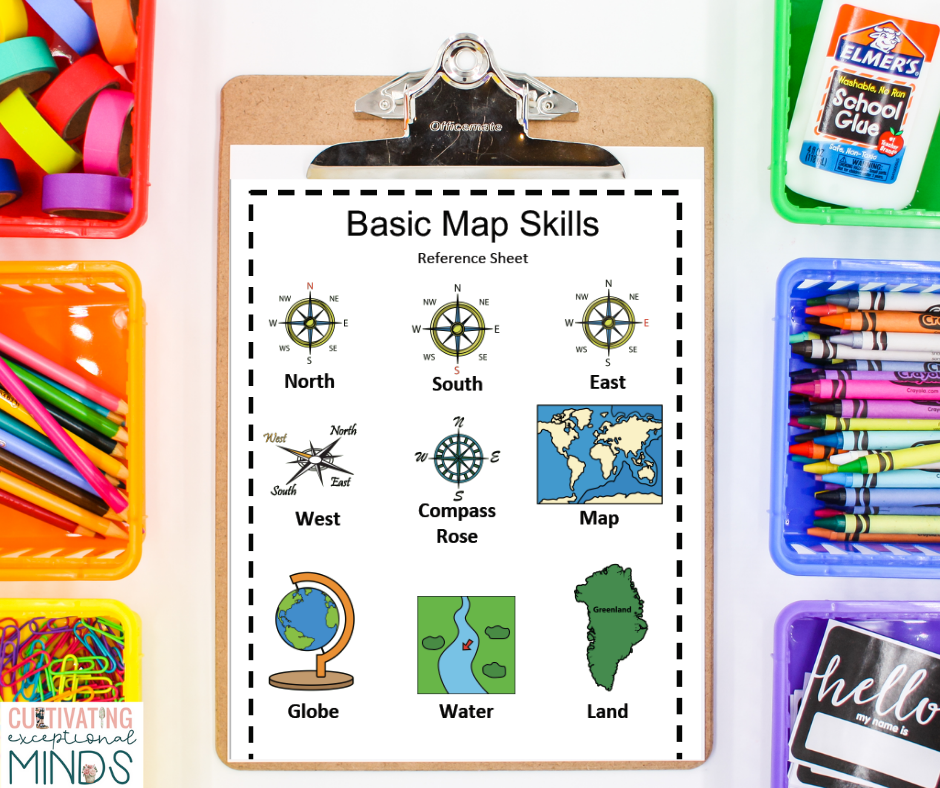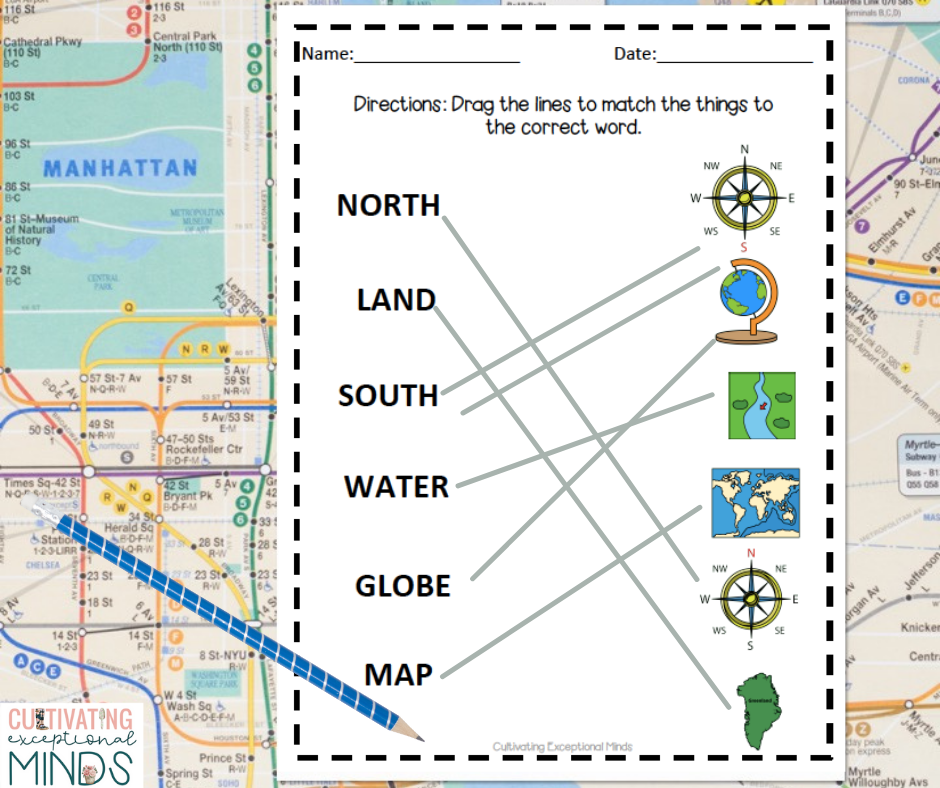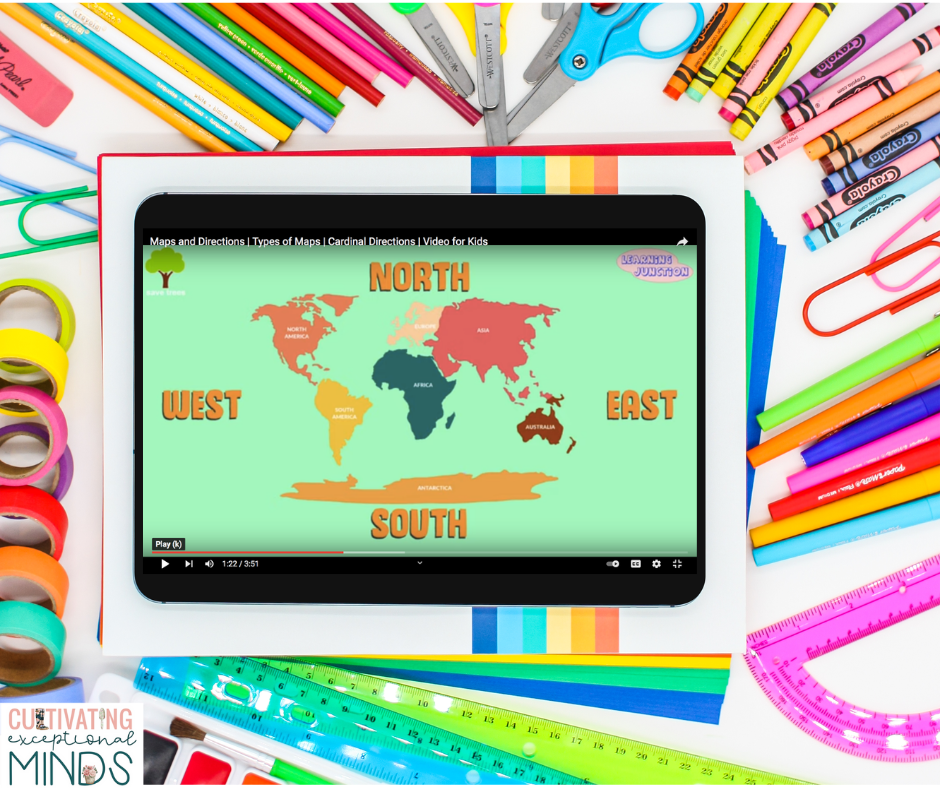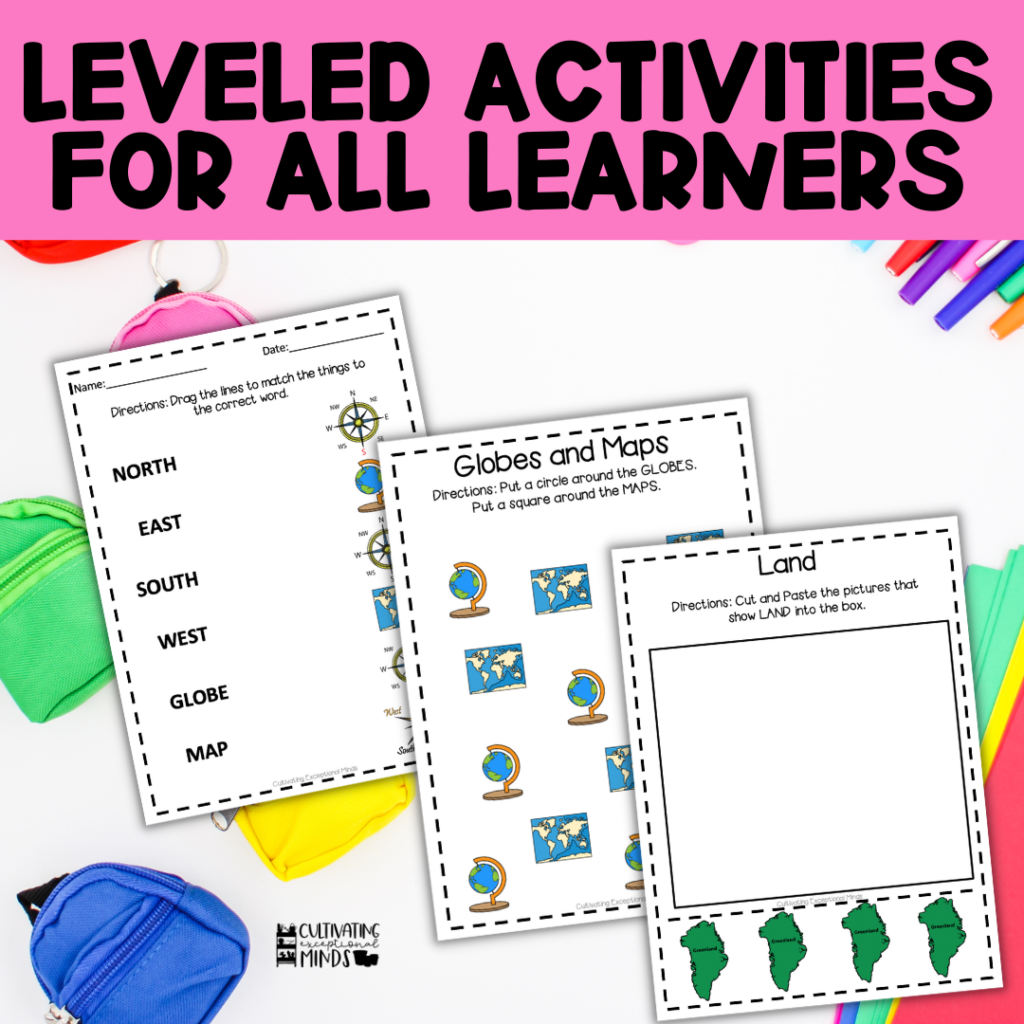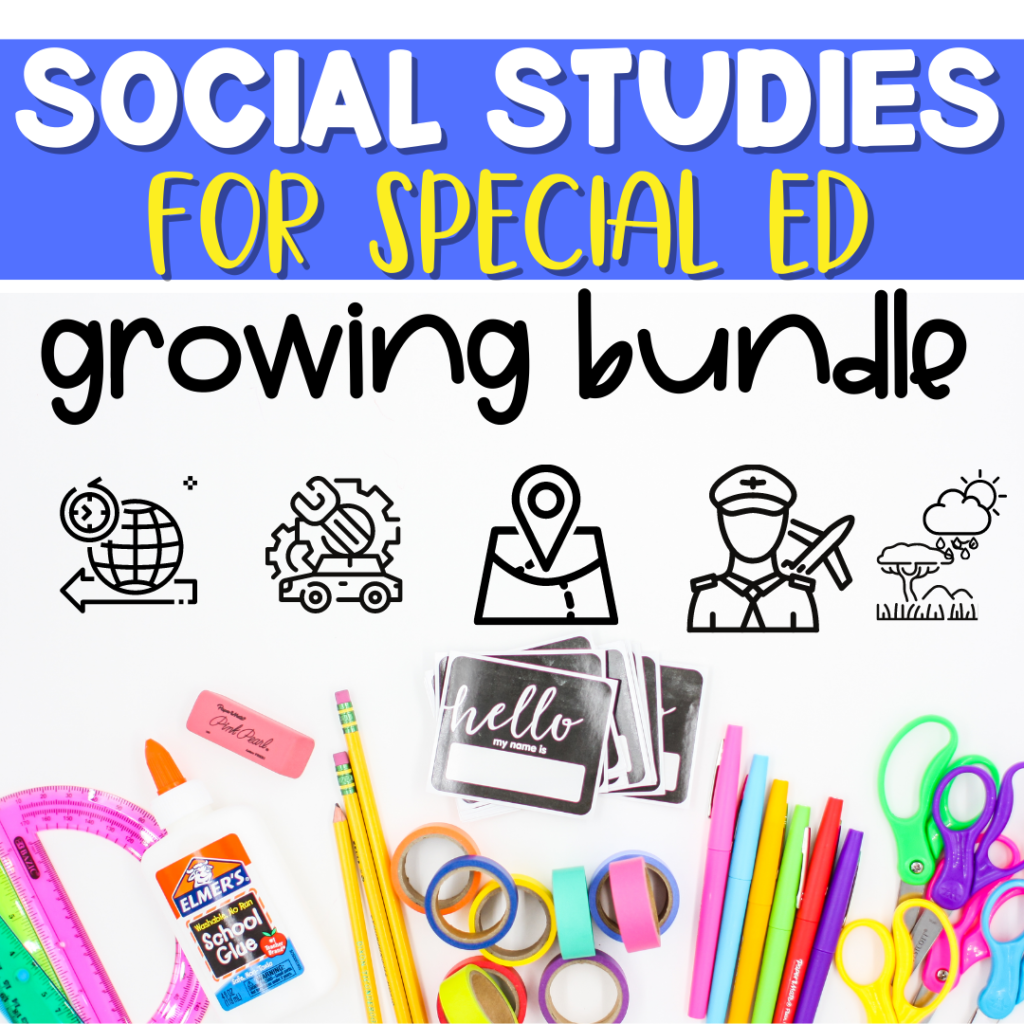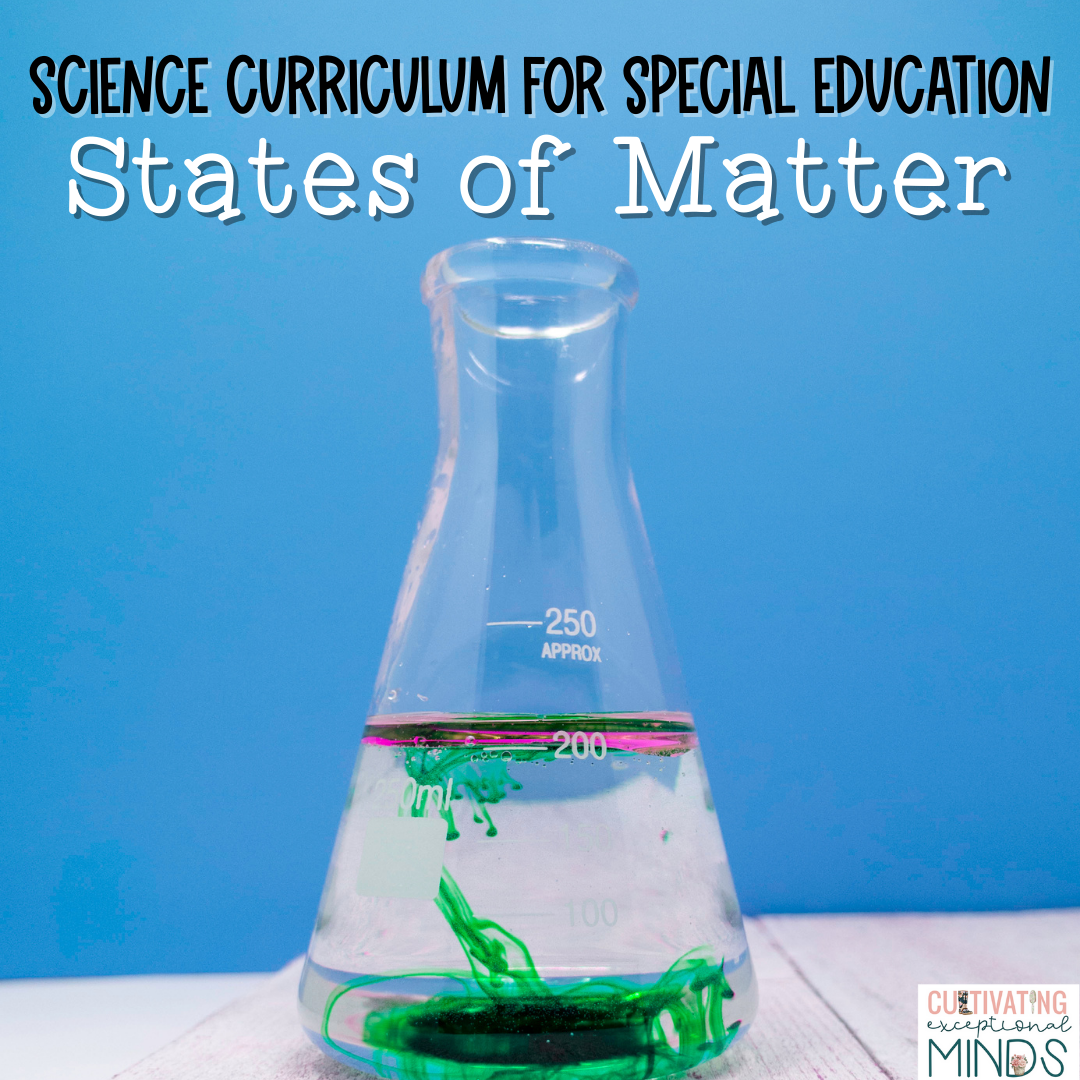You’ve been tasked with teaching social studies for special education, but you have no idea where to start. You are left to adapt a general education curriculum or given no curriculum at all. Sound familiar? I know this was the boat I was in! And when it came to teaching map skills it took lots of years of trial and error to find the activities that worked the best. Here are the top 3 ways I teach map skills to my special educations students.
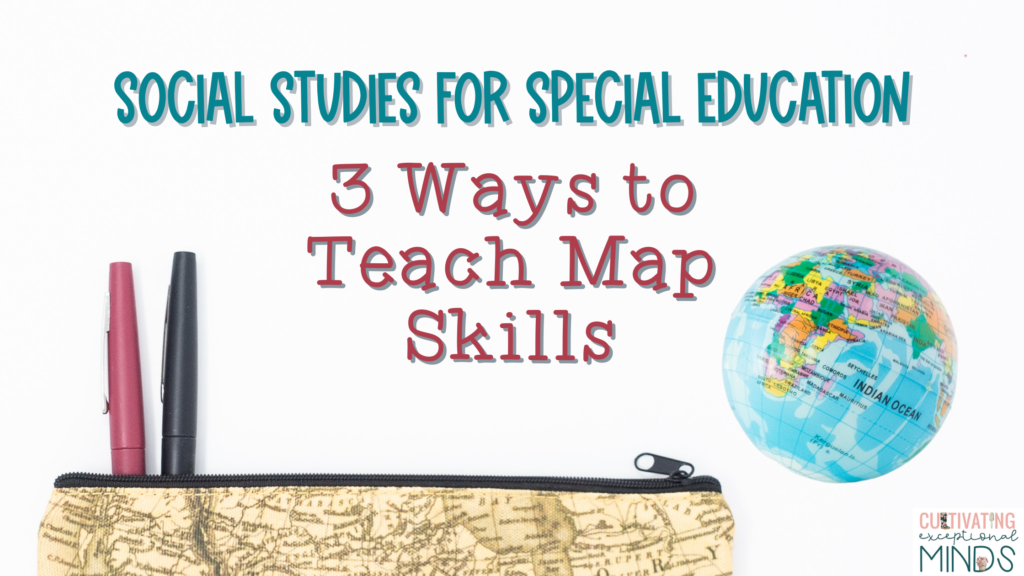
The good thing about teaching map skills is maps are very visually based and not heavy on text. So by using activities that utilize visuals (like the ones you will read about below), you will likely see lots of success with students understanding map skills and terms!
Errorless Activities
Introducing any concept when it comes to social studies for special education, I recommend beginning with errorless activities so that students avoid making errors with their responses (learn more about implementing errorless teaching here). By starting with activities that only have the correct answer on them, I am able to reinforce that correct response without students picking up any incorrect information.
When it comes to map skills, I suggest starting with the terms you are planning to teach and providing your students with a reference sheet with visuals. I typically present the cardinal directions and well as different land forms might see while trying to read maps.
Then I create a series of errorless activities for each term such as cut and paste, circling etc. This series of worksheets helps get students acquainted with the map concepts and helps them recognize each term easily.
Once students have completed this type of practice, I have them move on to differentiating between two different terms such as north and south or land and water in the case of map skills.
Cut and Paste Practice
Another great way to get students to practice terms related to map skills, is through cut and paste practice. I typically introduce these kinds of activities after students have completed my series of errorless worksheets.
These worksheets focus on visuals of the terms and identifying one concept from another. Students first identify the visual for the term we are targeting such as north. They then cut out all of the visuals that represent north and paste them into a box.
This helps me assess how easily they can identify the term and if they are ready for increased difficulty. If students are successful with these types of activities, I usually have them complete sorting tasks. This type of cut and paste activity, now has them focus on two different terms and they have to make sure that each visual gets in the correct spot.
Matching Worksheets
The last way that I teach terms related to map skills are through matching worksheets. This is where I begin to fade the visuals and place more focus on the identification of the written term.
For example, listing the terms on one side of the page and the visuals we have been using on the other. Students must read the word and then match it to their understanding of the term which is the visual we have been focusing on throughout other types of activities.
This adds a reading element to these social studies activities, which can help students get closer to reaching standards, but may not be appropriate for all learners. Make sure to always assess your students’ skills and choose an activity that best meets their needs.
Bonus Ideas: Task Cards and Adapted Books
Other ways that I love to teach social students for special education to my students is through the use of task cards and adapted books!
Task cards are a great way to give student extra independent practice and can be modified for any learner. You can have errorless map skills task cards that only have one term targeted, you can give multiple choices for answers and you can even have students practice matching the words to the visuals. Any time I can get that extra practice for my students I take it!
Furthermore, adapted books are a great interactive way to practice any skill, but especially work well for map skills. Being able to manipulate the book and have words that are supported by visuals allows students to not only read about map skills but use them!
Social Studies for Special Education: The Power of Digital Resources
Don’t forget about digital resources when planning your map skills lessons. There are many great short, informative videos that can help introduce cardinal directions, map keys, etc. I like to use these at the start of each map skills lesson to help introduce and remind students of the concepts we are learning.
Games and digital activities are also helpful when trying to reinforce social studies for special education concepts. Most students find them to be highly engaging which means they are more likely to learn the concepts!
Need Help Teaching Social Studies for Special Education?
Grab this done for you Social Studies for Special Education Map Skills resource that includes errorless activities, cut and paste practice, matching worksheets, video and digital activity links!
Also, check out the Social Studies Year Long Bundle and have your social studies for special education covered for the whole year!
The bundle includes:
- Map Skills
- Transportation
- Then and Now
- Community Helpers
- Land & Water
- America Symbols
- Goods & Services
- Natural & Man-Made Resources
- Inventors and Inventions
Don’t Forget to Pin These Social Studies for Special Education ideas for Later!
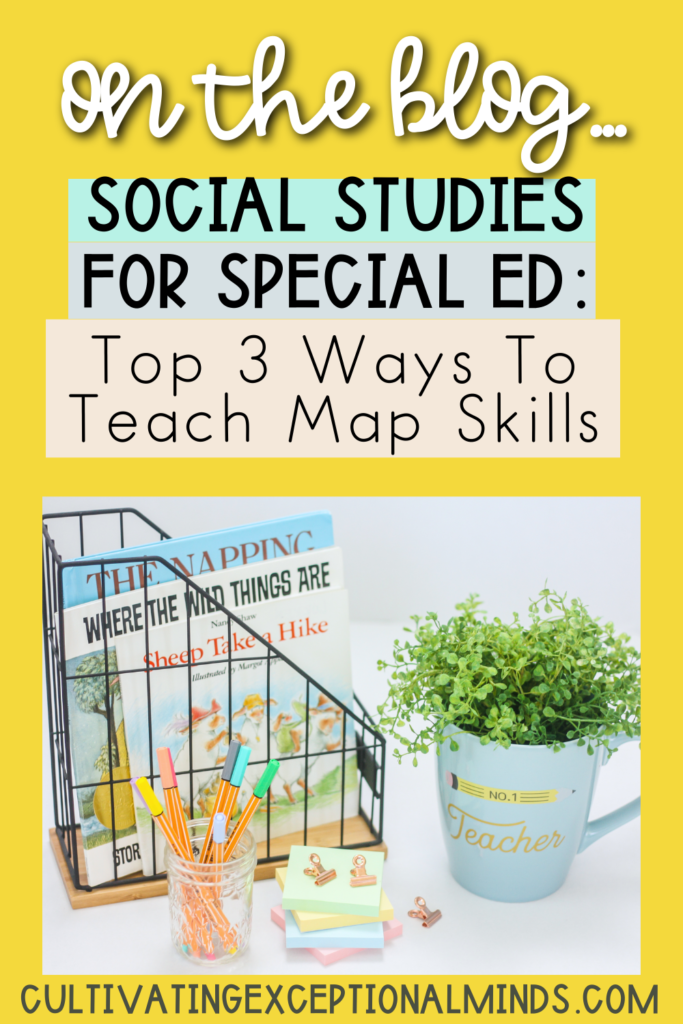
PIN IMAGE
